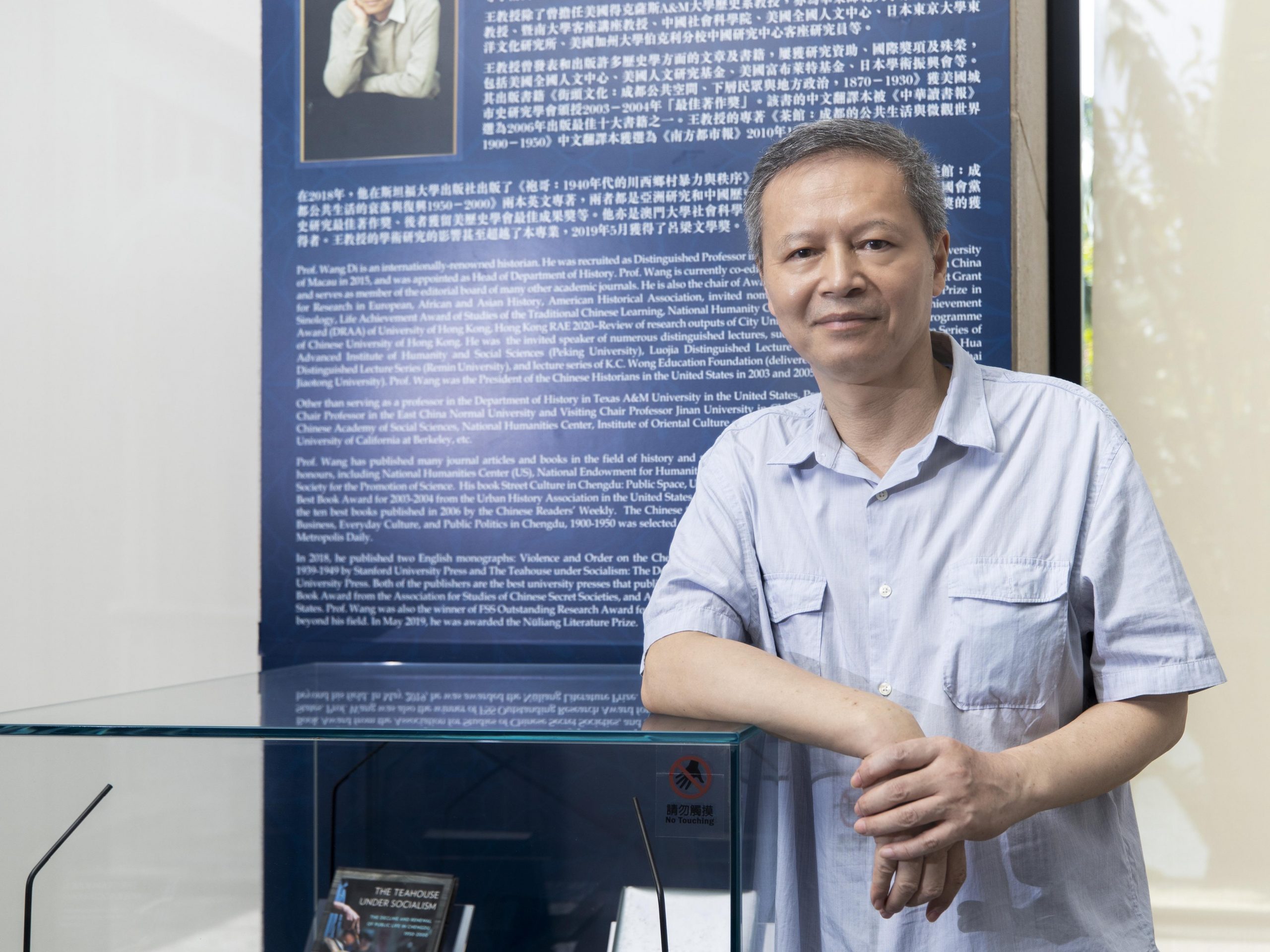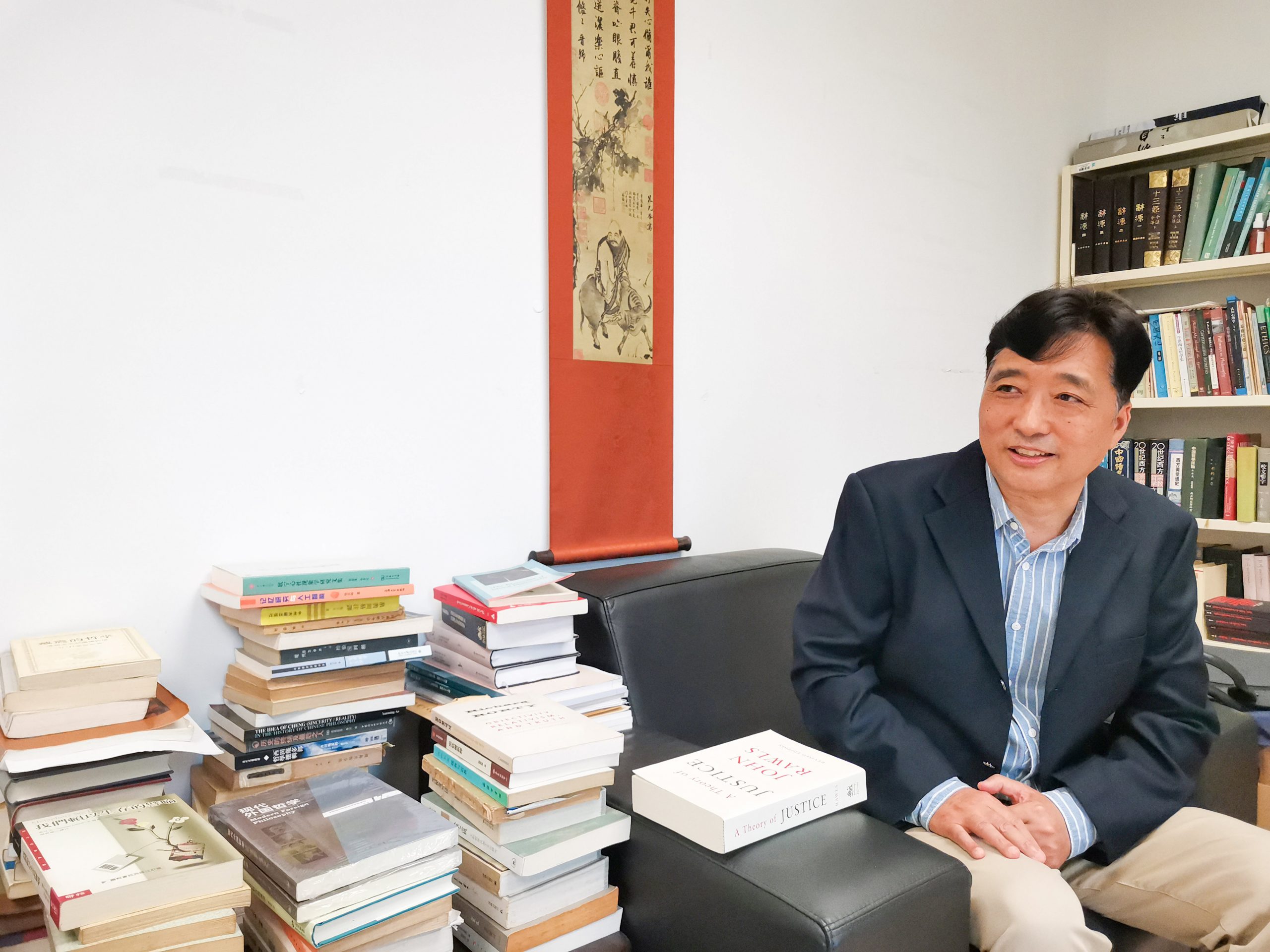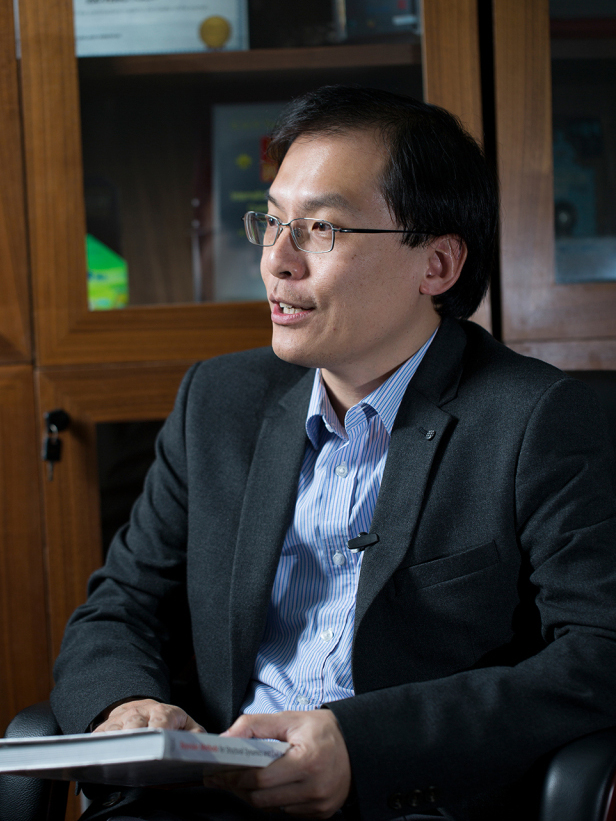Many students at the University of Macau (UM) often have to think hard about writing a dissertation. What does it take to write a good academic paper? In this issue, we interviewed several UM academics whose mother tongue is not English, who shared their experiences of publishing their first English theses and their experience learning English.
Extensive Reading and Writing Training
Prof Wang Di, head of the Department of History, was admitted with honours into the Department of History at Sichuan University in 1978, and stayed on to teach after graduating with a master’s degree in 1985. He travelled to the United States in 1991 and completed his PhD at Johns Hopkins University in 1999. Later, he served as a professor of history at Texas A&M University. He published two books in English during his 17 years of teaching in the US, but since joining UM in 2015, he has already published two books in English and four in Chinese, as well as 21 papers in both English and Chinese, which he says are the most representative of his research in 30 years.
Prof Wang is recognised as a major scholar in the study of Chinese urban history and new cultural history, and his work is highly regarded. How did this academic write his first thesis? Prof Wang’s first research paper in English was published at Johns Hopkins University, and he spent nearly a year preparing it, including collecting data and reading relevant theories, which would later form the basis of his PhD thesis. He says, ‘I think in order to improve your English, you need to read extensively and write a lot, so students can start by reading some papers or chapters of good-quality books and then their writing will improve over time.’
Writing with Substance
According to Prof Wang, a good essay must have substance, with a clear and well-structured argument, well-layered paragraphs, and a good flow. ‘The key to writing, whether in Chinese or English, is knowing how to express ideas and how to set up an essay,’ he says. ‘Writing is the hardest part, but students must overcome it if they want to progress into academia.’
Prof Wang taught a writing course in the US and has been teaching a compulsory writing course for students since joining UM. ‘Historical research papers can range from 30 to over 100 pages. I usually teach students to start with short essays and then move on to longer research articles,’ he says. ‘The writing class uses a handbook that is designed to teach students how to write essays, and it is very useful and informative as it clarifies some of the basic requirements, rules and formats of historical writing.’
Having a Unique Perspective and Strong Arguments
Prof Wang Qingjie, head of the Department of Philosophy and Religious Studies, joined UM just over a year ago, having previously taught at the Chinese University of Hong Kong, Oklahoma State University, Montana State University, and Peking University. His main research interests include contemporary Western philosophy (particularly German phenomenology), comparative Eastern and Western philosophy, and ethics and moral philosophy. He graduated from the Department of Philosophy of Nanjing University in 1977. His first thesis in Chinese was published during his master’s studies at Peking University, and his first thesis in English was published during his PhD studies at Tulane University.
For historical reasons, Prof Wang only began learning the ABCs of English in college. He says, ‘Back then, we used the traditional method of memorising words and texts to learn English. It was only after I went to study in the US that I was able to improve my English by immersing myself in the language environment.’ He has published a number of academic books, as well as nearly 50 academic papers in both English and Chinese. Three of his translations of philosophical classics have been selected for the prestigious Chinese Translation of World Academic Masterpieces series. He says, ‘Academic writing, whether in Chinese or English, is not so much about ornate wording as it is about insight and personal style. A philosophical essay, in particular, must not only state a unique argument or statement, but also articulate it clearly and provide sound justification for it.’
Imitating Sentence Structures
Prof Yuen Ka Veng of the Department of Civil and Environmental Engineering has been teaching at the university for nearly 20 years and sums up his experience by saying, ‘Theses in science and engineering involve a lot of equations. Before starting a thesis, students should look at how others describe the symbols of an equation and then work hard to imitate the sentence structures. Remember to keep the sentences short and concise, use fewer complex sentence structures, and be grammatically accurate.’
Prof Yuen received his undergraduate degree in civil engineering from Taiwan University in 1997, followed by a master’s degree in civil engineering from the Hong Kong University of Science and Technology (HKUST) in 1999, and a PhD degree in civil engineering from the California Institute of Technology (Caltech) in 2002. In 2004, he co-authored a paper with James Beck, a pioneer of Bayesian analysis in structural dynamics and his PhD advisor at Caltech. Titled ‘Model Selection Using Structural Response Measurements: A Bayesian Approach’, the paper was published in the Journal of Engineering Mechanics, the flagship journal of the American Society of Civil Engineers, and was ranked in the top ten out of over 3,000 papers published in the journal in the past decade in terms of citation frequency.
Expanding Your Vocabulary
Prof Yuen was a top student at secondary school, in college, and during postgraduate studies. He says, ‘When I was a student at Pui Ching Middle School Macau, my teachers were very strict about English grammar, which helped me build up a solid grammar foundation. Later on, I went to the Taiwan University, where all the textbooks were in English, and in the four years I built a large vocabulary of technical terms.’
Source: My UM Issue 104




